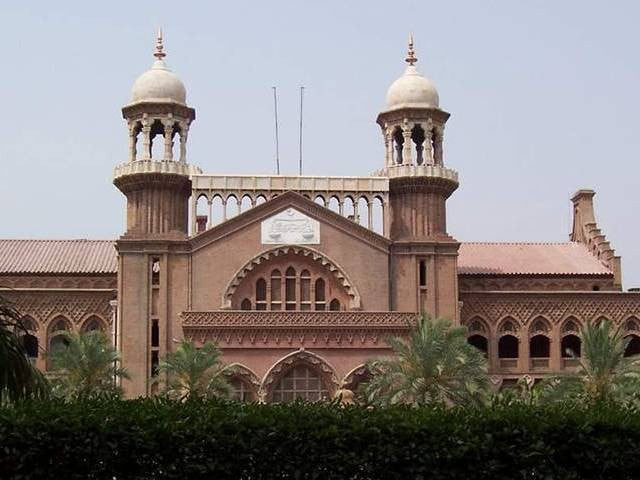FBR finds it hard to defend 10% super tax in courts
LHC suspends levy for firms whose accounting year ended in December

The Lahore High Court (LHC) on Thursday conditionally suspended up to 10% super tax for companies, whose accounting year closed in December last year but were still required to pay it, exposing the half-baked policies that were denting the government’s image.
The court provided interim relief to only those companies whose tax year closed in December 2021.
However, they were still supposed to pay the super tax despite the closing of their accounts.
The majority of Pakistani companies have their accounting years closed in December.
The PML-N led coalition government has imposed 1% to 10% super tax to raise additional Rs80 billion every year.
“The FBR (Federal Board of Revenue) is directed to allow the petitioners in this and concerned petitions to file their returns excluding the tax under Section 4C of the Ordinance of 2001 subject to the deposit of post-dated cheque of the differential amount liable to be deposited under Section 4C,” read the interim LHC order.
The government had inserted Section 4C in the Income Tax Ordinance to charge the super tax from 13 specific sectors.
The LHC clarified on request of the petitioners that cheques shall be encashed on the court's directions or subject to decision in this and connected petitions.
The Services Industries Limited, Ibrahim Fibers Limited, Ibrahim Holdings Private Limited, Highnoon Laboratories Limited, Lotte Akhtar Beverages Private Limited and Total Parco Pakistan Limited have challenged the levy of the super tax in the LHC through their lawyers.
The case has been adjourned till October 20.
In his budget windup speech, former finance minister Miftah Ismail had announced imposing between 1-10% super tax on big firms to collect an additional Rs80 billion from them.
The government had picked 13 sectors that according to it made windfall gains, taking their total income tax rate to 39%.
The government imposed the super tax on banks; cement; iron and steel; sugar; oil and gas; fertilisers; LNG terminals; textile; automobile; cigarettes; beverages; chemicals; and airlines.
It is the third major relief that any court has provided in the past one week, which might carry adverse revenue implications to the tune of Rs125 billion.
The court cases have exposed the half-baked taxation measures, which also in some cases caused embarrassment to the government.
The LHC this week had also permitted the real estate sector that it could seek an extension in the filing of annual income tax returns.
That was in case if it was aggrieved by the 20% deemed income tax.
Similarly, the Sindh High Court last week allowed the banks to file annual income tax returns on the basis of the old advance-to-deposit ratio (ADR).
The FBR had taken those two measures in the budget to raise a cumulative Rs45 billion in additional taxes.
The LHC on Thursday observed that the petitions are entertained only to the extent of the retrospective effect of the Section 4C, against past and the closed transactions.
“Subject to determination whether petitioners case fall within the term past and closed transaction, the law prima facie is clear that a retrospective legislation, by express words, would not disturb the past and closed transactions, as rights of the parties are not only accrued but are acted upon,” read the order.
The court provided relief a day before the end of the statutory deadline to file annual income tax returns along with the wealth statement.
So far over 1.5 million individuals, Associations of Persons (AOPs) and companies have filed annual tax returns.
They constitute hardly 40% of the taxpayers, who had submitted their returns during the last year – 2021.
Data compiled by the FBR showed that so far about 4,600 companies had filed annual returns.
Of those, 3,750 filed nil returns. Nil returns mean that the companies did not do any business throughout the year. One of the reasons for the lower number of returns filed by the companies is said to be that the fiscal year of many companies ends in December, unlike the normal July-June cycle.
However, the number of companies filing returns has significantly decreased compared with the previous tax year when over 67,000 firms submitted them to the FBR.
The ratio of return-filing companies this year was less than 7% compared with the previous one.
The LHC judgment came on the day new Finance Minister Ishaq Dar made his maiden visit to the FBR in five years along with the former chairman of the bureau and ex-State Bank governor, Tariq Bajwa. Tariq remained active with the finance minister on Thursday.
During his first interaction with the taxpersons, Dar is said to have expressed disappointment over the FBR’s reluctance to provide his tax record to the courts.
This was during the time when he was facing court and media trials.
Dar has filed all his income tax returns since the start of his professional career but then tax administration did not timely provide this information, leading to his media trial at that time.
Dar was of the view that when nobody was speaking what was right and the media was not allowed to carry his statements, at least the FBR officials should have spoken the truth.
Asim Ahmad, the incumbent chairman of the FBR, assured the finance minister that the bureau would achieve the quarterly target, according to a statement issued by the finance ministry.
The FBR is required to collect Rs1.61 trillion in taxes and till Thursday evening it had managed to pool Rs1.54 trillion, requiring to fetch another Rs70 billion on the last day.



















COMMENTS
Comments are moderated and generally will be posted if they are on-topic and not abusive.
For more information, please see our Comments FAQ